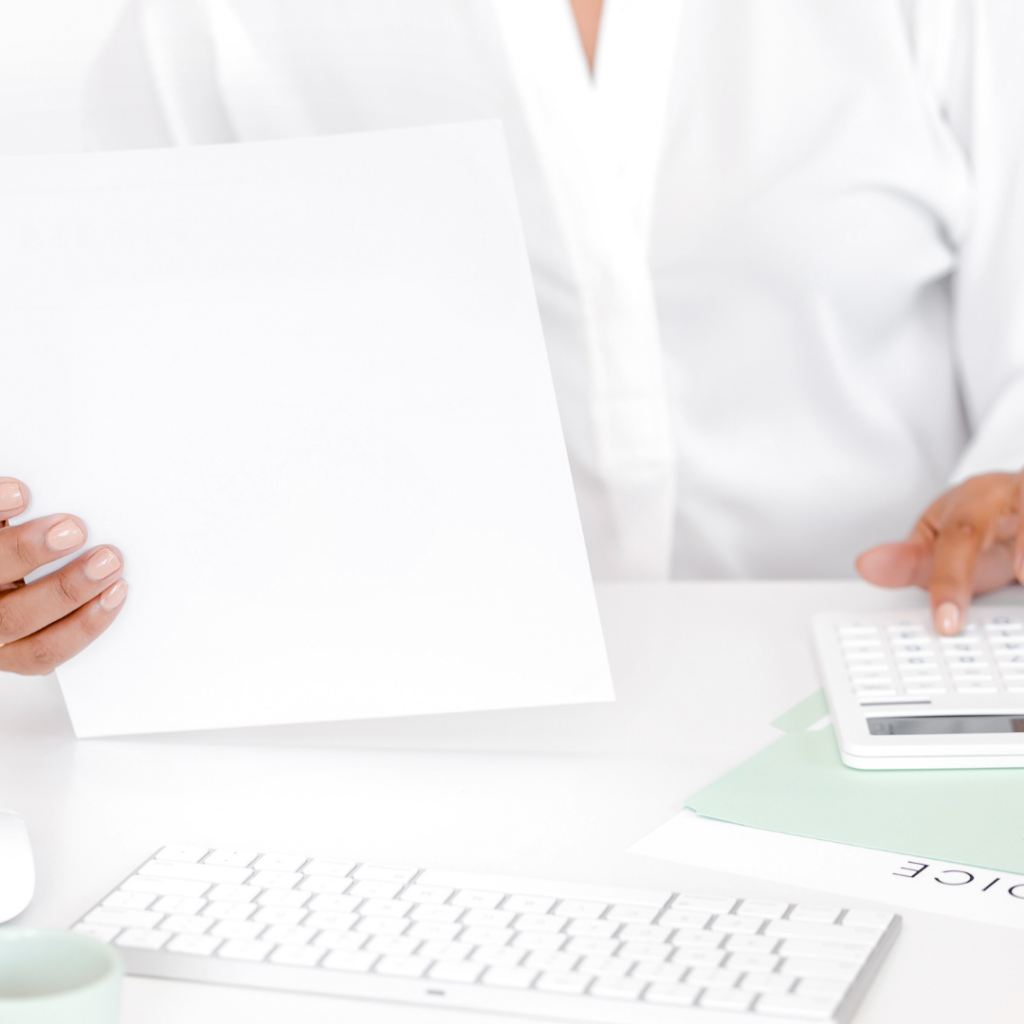Credit card debt can be overwhelming, mostly due to the fact that the interest rates are ridiculously high. The average credit card interest rate is 19.99% and that’s calculated with compound interest. These high interest charges mean that you are paying more for the use of the ability to carry a loan than actually paying back the loan.
Many people carry balances on their credit cards but remain blissfully unaware of how much that interest is costing them per month. Staying in the credit card trap, they pay their minimum payment and move on with life.
But if they really knew how much they were being charged in interest per month would they hurry up and pay off their credit cards and swear to never use them again?
There are so many people who are carrying debt and view it as what has become a normal way of life.

Carrying debt becomes very expensive, because not only do you owe the amount that you borrowed, but you owe the interest that is accumulating as well. Rich people do not make a habit of carrying debt. The best way to building wealth (your personal net worth) is to not have debt. Debt eats away at your money.
The best thing you can do is stay away from credit card debt. Payday loans are the worst because their interest rate is higher, but credit card debt is next. Do you know how much it costs to carry credit card debt?
It can be a very expensive habit, as most credit card companies are charging 20% interest rate. Think about how that adds up.
For example, if you are carrying $10,000 on your credit card from month to month and your credit card charges 20% interest rate, compounded for 12 months that debt is costing you $2,193 to carry for the year. If you carry it for three years, it will cost you $8,131 and five years will cost a crazy $16,960!
When you carry a balance on your card it can become habitual to have that balance from month to month weighing you down and not paying off that debt. You get used to it, and soon carrying that debt is no longer month to month but becomes year to year.
But when you realize how much money you are paying in interest fees over the length of the time you carry that debt, that truth can jolt you into reality.
Imagine paying $16,000 of interest expense within five years to carry $10,000 worth of debt on your credit card. That is a harsh reality, and I wish I was exaggerating. But numbers don’t lie.
If you are carrying credit card debt and are able to move that debt to a cheaper interest rate like a line of credit, I suggest you do that, with the caveat that you have full intentions of paying off that debt and prevent future debt accumulation.
Pay off your most expensive debt first and work your way down the least expensive until all of your consumer debt is paid off.

Why is it in your best interest to pay off debt? Because debt steals from you in a few ways.
Money – to borrow money, it costs money. If you do not have the cash to pay for something outright, you cannot afford it. It’s that simple. And if you charge it on your credit card, you are living beyond your means.
Health – when you are having trouble paying off debt are short on cash, this causes stress. Stress is unhealthy. If you have been carrying debt for years and you are stressing out about the debt regularly, imagine what it is doing to your health.
Freedom – when you owe money you are a slave to your debt. You are working to pay off your debt, rather than having the freedom of your money working for you.
Carrying debt is behaviour that leads to an unhealthy lifestyle. Staying out of debt and living within your means is the best solution.

Credit card interest rate calculator
The biggest and most common ways for people to get into financial trouble is by carrying a balance on their credit. Credit card interest rates are high, where the average credit card interest rate is about 20%.
What people may not realize is that when you cannot meet your full payment at the end of the month, the interest will start accruing from the date of purchase.
If you carry a balance on your card and strictly pay minimum payments it will take on average 40 years to pay off that credit card, provided you never use it to make a purchase again.
If you make a large payment on your credit card and turn around and put more purchases on your credit card, you are paying a 20% interest charge right from the date of that new purchase, plus the interest of the remaining balance.

Credit card payment calculator in excel
I have put together a mini-course that walks you through the debt repayment spreadsheet. This is a credit card payment calculator that was built in an excel spreadsheet. It is a mini-course that has a short video and a debt repayment schedule.
Credit card interest calculator monthly
When you know how the credit card interest can calculate on a monthly payment that is helpful to see how much money is going towards just paying the interest penalty versus the principal.
Make sure you grab the debt calculator mini-course to see how the credit card interest calculator is calculated on a monthly basis.
Credit card interest formula to calculate yourself
The Debt Repayment workbook has the credit card interest automatically calculated for you, so no need to understand confusing formulas.

Saving money isn’t just about clipping coupons…
When you are searching for ways to get out of debt do you mostly hear about ways to save money so that you can apply it to your debt? There are tons of ways to save money at the grocery store, buy on sale, drive less, save on your insurance, etc.
Although these tips are all helpful, clipping coupons will plug a small money leak.
These small steps are super important to watching your spending behaviours, and the small steps can add up to saving several hundreds of dollars in a month, but there is so much more that I feel doesn’t get addressed. It’s how much we can save by paying off our debt. That’s where the big money lies.
You will see HUGE returns when you stop carrying debt.
And then you can turn those savings into investments and get your money working for you, rather than against you.

The average American carries $5,897 of credit card debt, per a report from Creditcards.com. I’m going to start with this number because I find the interest paid on carrying this debt should be the most motivational to get you out of debt.
If you want to see immediate results, you need to pay attention to your debt! Yep, credit card debt, lines of credit, car loans, personal loans, mortgages, and any other debt you have.
I’m sure you can see the craziness of this debt cycle.
If you are in this cycle of credit card debt, it is time to review your options.
If you are able to, look into other options of financing that debt at a lower interest rate. Do you have a line of credit you can transfer that balance to? Lines of credit usually offer a much lower interest rate than the credit card companies.
Are you able to consolidate your balance at a much lower interest rate? This is a common solution for people who carry credit card, personal loans, and lines of credit and need to consolidate their balances into one payment at a lower interest rate.
But transferring high interest debt into a lower interest debt isn’t clearing the debt. You need to make a debt repayment plan and stick to it.
Grab a copy of the Debt Repayment Calculator mini-course to work through your debt and create a repayment plan.
My advice to you is to reduce your spending
If you are spending too much in order to meet your living expenses, you will likely need to look further at your situation, as you likely are living beyond your means and you will need to make some essential changes to your lifestyle.

5 tips on how to recover from credit card interest debt
Debt repayment takes commitment and hard work. It can be depressing and require motivation and discipline. Paying off debt is not nearly as much fun as you had when you were spending yourself into debt.
However, debt recovery is worth the journey. Because once you have recovered from debt, you are living a life with meaning. You will have extra money, you will be in control of your life, and you will have more options. Debt will no longer weigh you down.
Here are some suggested steps to take for your debt recovery journey:
Create your personal budget
You got into debt by living beyond your means, and now it’s time to get out of debt. You need to take action and start spending less than what you make each and every month. You need to save money and put that extra money towards your debt. That will be a quicker way to get out of debt.

Make a list of all your debt
List all the debt providers (ie Visa), the interest amount, your minimum payment required each month and the full balance of the debt. Pay your minimum payments on all your debt, then take the most expensive debt and start paying that down. Once that’s paid, move to the next most expensive debt. Repeat until debt is gone.
Check out the debt repayment mini-course to get instruction on debt repayment.
Stop spending and start saving
Start finding creative ways to make money and save money. You will be amazed at the difference you can make by finding extra money and paying down that debt. It gets you so much closer to financial freedom the quicker you pay off debt.
Address any money mindset issues to ensure you never get back into debt
Money is one of the most emotionally charged topics. When you deal with the feelings that you have around money and what thinking allowed you to get into debt and stay in debt, then you can work at changing that behaviour so it becomes more important to you to get out of debt and stay out of debt. Being in debt is not healthy, and is extremely pricey.
The key is in taking action
It’s not enough to talk about it. You need to do it. The best action you can take is by starting. Even if it’s just baby steps. Small progress adds up to huge progress!
If you are in debt, you are living a lifestyle that is difficult to maintain. Too much debt can cause bankruptcy, among all the other negative issues mentioned. It is unhealthy to maintain debt.
Secrets to stop overspending
With the pandemic and Covid closures, it has been reported that the consumer debt levels have fallen, which is good news.
But as the world opens up again, if you had a spending problem before Covid, you’ll need to pay attention to your spending habits to ensure you don’t overspend.
Let’s face it, we’ve all done it.
Spending too much is akin to eating too much. We’ve all done it. It doesn’t make it a problem unless you are overspending too much too often. It’s by far the easiest and quickest way to get get yourself into unmanageable debt.

Some tips on avoiding overspending:
Understand your triggers.
This is the most important secret because once you understand those triggers, you will have the ability to gain control over your spending. Take note of what set you off and led you to overspend.
An example of a trigger could be that lately you’ve been feeling like the kids are stressing you out, that you have no time for yourself, and you need a quick pick me up. And for sure, spending money like that can make you feel good, but it damages your finances.
An alternative could be taking a hot bath to soothe your soul, going for a walk in nature by yourself or with a friend, or just reaching out and connecting with someone can nourish your soul.
Good feelings are generated by deeper and more meaningful activities than spending money.

Track your spending
If you really want to stop overspending, create a plan for your money and monitor your progress. A plan is a budget. Remember, there is little value in planning a budget if you do not intend to follow it. Monitor your spending throughout the month to ensure you don’t go over budget.
Monitoring your spending means that for each budget category, you respect your money by staying within the spending parameters that you set for yourself. When you see that you are reaching your limit, you need to stop spending or find creative ways to stay within your overall budget.
There are some great apps out there that monitor your spending for you, if you are looking for an easy way to monitor your progress.
Pay cash
Studies have shown that paying cash for items is a lot harder for us to do than using plastic. Paying cash for items is a more mindful process, as we tend to have a limited amount of money in our wallets. There’s a feeling of scarcity or increased awareness when we part with cash.
Alternatively, using plastic can become mindless where we aren’t tracking the total amount that we are spending. And when the bill arrives, it gives us a sinking feeling in our gut.
Ways self-sabotage is keeping you broke
The struggle is real and good financial behavior can be challenging.
Either you are spending too much money, stopped following your budget, stopped putting money away for savings, we get lured by the temptations and all our good habits get sidetracked, even with the best of intentions.

The top ways to you are likely sabotaging your personal finances:
Spending too much money impressing people you don’t even like
When you feel the need to keep up with friends, family, neighbors or colleagues to impress others with all your stuff, this becomes problematic, because you likely don’t want or need the stuff you are using to impress people you don’t even like.
When they get something new, you feel that you need to get it too or you are inferior in some way. The reality is debt is everywhere and the people you are competing with are in debt too.
You’ve stopped saving
When faced with a financial hit the easiest way people tend to think they can recover is by putting a stop to their savings plan. Maybe the intention is to go back to it as soon as they get back on their feet, but often it is easier said than done.
Do not stop saving your money, even if you have to reduce the amount, don’t stop.
You’ve stopped following your budget
A budget is essentially a plan for your money. It plans how much to spend in groceries and other important expenses throughout the month. It is the best way to spend less than what you bring in each month.
When you choose not to follow a budget you usually ended up spending more money in a month than you are bringing in, and that is the quickest way to rack up unmanageable debt levels.

Not price shopping for big and small purchases
It may sound tedious, but when you price compare, you are giving yourself a huge financial advantage, because all those savings add up to big dollars. When you are in the habit of stocking up when things are on sale, paying the best price for food, clothing, gas, and any essentials that you need regularly, along with price comparing big purchases, the savings in your pocket are huge.
Using your house as an ATM
In recent years with unprecedented house price increases, it has become habitual for people to tap into their home equity when they are having trouble making ends meet. This is a low-cost financing option to replace the cost of expensive debt, as mortgage rates are one of the lowest interest rates. But if you keep this habit, when will you pay off your mortgage?
Being financially responsible may sound boring but when you decide to get out of your own way and work towards financial freedom, the feeling of achievement will feel so good.
Money planning is a lifelong habit, just like diet and exercise – you have to work at it every day. It’s a habit, a way of life.
Look for ways to stay motivated and stay on your financial plan. Your retirement will thank you for it.
